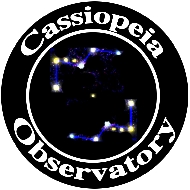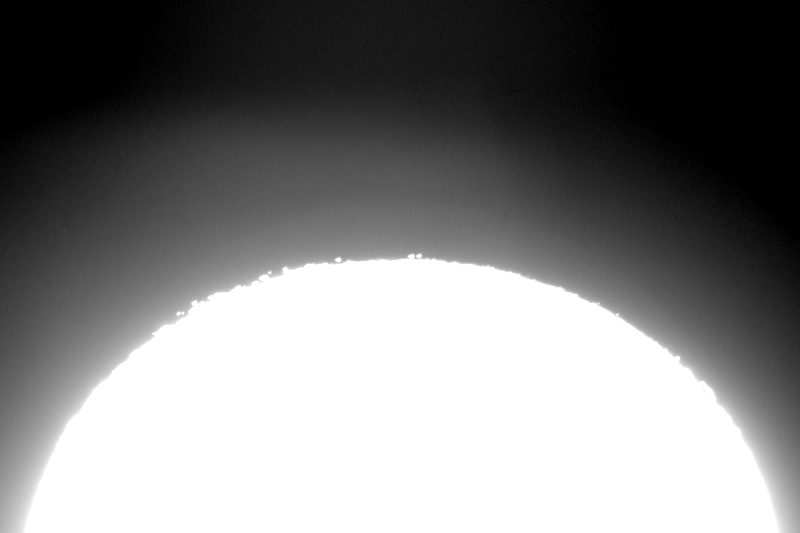
Earthshine on Waxing Gibbous Moon
Posted: 23 February 2013
After my failed attempt at imaging the HST-Sun transit in the afternoon, I returned to the observatory Friday, 22 February 2013, shortly before sunset. The observatory was opened at 1802 MST, 56°F. The sky was clear, with a slight breeze blowing. At 1811 MST, viewed Mercury, 77X and 222X. There was a nice crescent phase visible, but seeing was very bad. I decided to try imaging Mercury anyway. Mounted the D7000 DSLR on the 8" LX200-ACF for eyepiece projection astrophotography, 222X. Focusing was difficult due to the bad seeing. I did several HD video recordings, but no frames showed a clear image of the planet; all were distorted due to the bad seeing.
I removed the camera from the telescope and at 1831 MST, viewed the waxing gibbous moon, 77X and 222X. Seeing was still bad. I began looking for Earthshine as the sky darkened, but it never became visible. At 1854 MST, I mounted the D7000 at prime focus + visual back. At 1905 MST, took this photograph of the moon, 1/640sec, ISO 400:

I needed the focal reducer to get the entire lunar disk in the camera FOV, but I didn't add it.
I then began several attempts at capturing Earthshine, "Hat Trick", ISO 400. One image (slightly cropped) managed to faintly show Earthshine:

That's pretty amazing considering the moon's brightness and phase.
At 1915 MST, took a quick look at Jupiter, 77X. Three moons were visible.
Just prior to closing the observatory I took this photograph (slightly cropped) of the moon with the D7000 DSLR, f/11, 1/500sec, ISO 400, 300mm:

The observatory was closed at 1929 MST, 40°F.
Comments are welcome; use the Comments section below, or you can Email Me. Thanks.
Go to the previous report.
Return to the Cassiopeia Observatory Home Page.